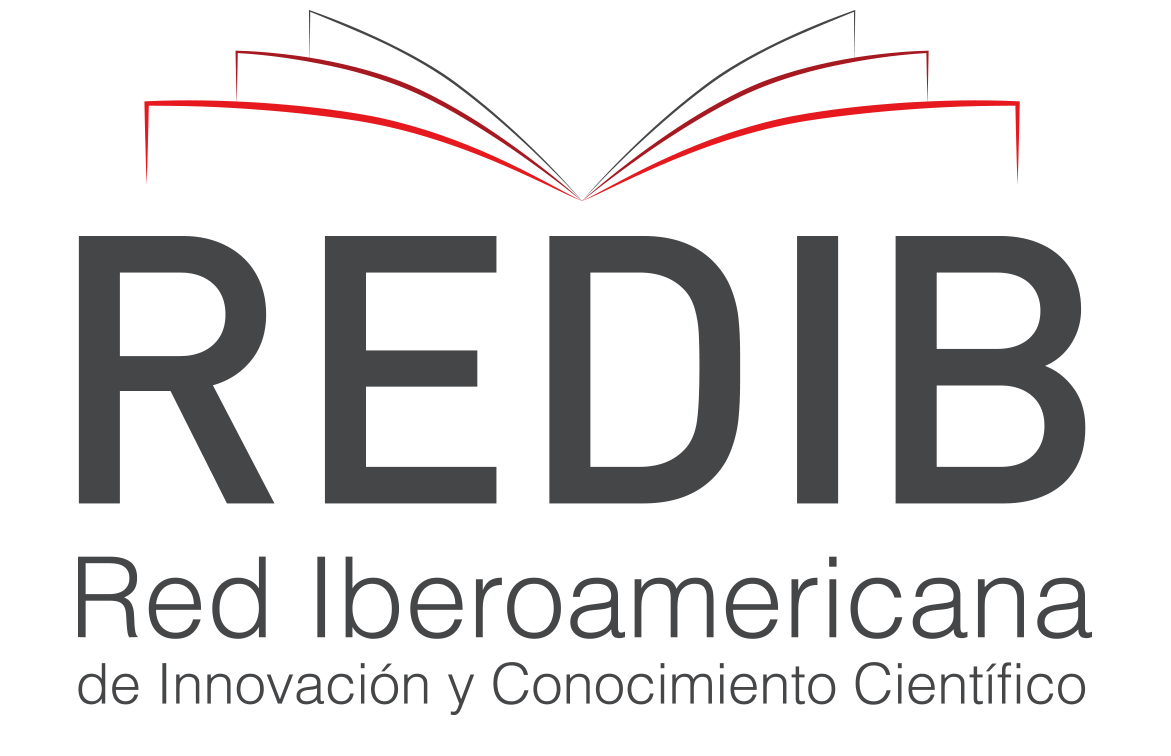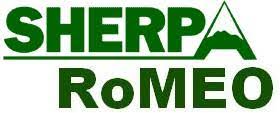IDENTITY, AUTONOMY AND PROFESSIONAL TEACHING DEVELOPMENT
Keywords:
Teaching identity, Autonomy and Professional DevelopmentAbstract
After the literature review in the field of identity, autonomy and professional development of teachers, seeking to analyze the relationship that exists at the level of these concepts in the teaching-learning process. We conclude from this analysis that it is important to reflect on initial teacher training and its contribution to the construction of the identity and professionality of teachers in secondary-level teacher training courses, as well as the need to adjust the higher-level training offer, developing training programs that take into account the perceptions and representations of the teaching profession and the profile of trainees, with a view to promoting development and autonomy.
References
Abric, J. C. (2001). Les representations sociales: aspects théoriques. In J. C. Abric (Ed.), Pratiques sociales et représentations (pp. 11-36). Paris: Presses Universitaires de France.
Altet, M. (2002). Quelle(s) profissionnalité(s) des formateurs en formation continue? Vers un profil polyidentitaire. In M. Altet; L. Paquay & P. Perrenoud (Eds.), Formateurs d’enseignants: quelle professionnalisation? (pp. 59-87). Bruxelles: De Boeck.
Amigues, R. (2004). Trabalho do professor e trabalho de ensino. In Machado, A. R. (Org.). O ensino como trabalho: uma abordagem discursiva. São Paulo: Contexto.
A. M., Damião, M. H., Bidarra, M. G., Seixas & Festas, M. I. (2012). A formação inicial de professores nas universidades portuguesas. In A. Melo & I. Nascimento (Eds.) Licenciaturas. São Luís: EDUFMA.
Bidarra, M. G. (2002). Do grau de transmissividade das práticas de formação ao optimismo irrealista. Revista Educação, 11(1) 159-162.
Blase, J. & Kirby, P. (2009). Bringing out the best in teachers: what effective principals do. Thousand Oaks, CA: Corwin Press.
Blin, J. F. (1997). Représentations, pratiques et identités profissionnelles. Paris: L’Harmattan.
Baradaran, A. (2016). The relationship between teaching styles and autonomy among iranian female EFL teachers, teaching at advanced levels. English Language Teaching, 9 (3), 223-234.
Beijaard, D., Meijer, P. & Verloop, N. (2004). Reconsidering research on teachers’ professional identity. Teaching and Teacher Education, 20, 107-128.
Chong, S. & Low, E. (2009). Why I want to teach and how I feel about teaching. Formation of teacher identity from pre-service to the beginning teacher phase. Educational Research for Policy and Practice, 8, 59-72.
Coldron, J. & Smith, R. (1999). Active location in teachers. Construction of their professional identities. Journal of Curriculum Studies, 31 (6), 711-726.
Chapman, D. W. & Lowther, M. A. (1982). Teacher’s satisfaction with teaching. The Journal of Educational Research, 75 (4), 241-247.
Cubukcu, F. (2016). The correlation between teacher trainers’ and pre-service teachers’ perceptions of autonomy. Procedia - Social and Behavioral Sciences, 232, 12-17.
Day, C. (2001). O desenvolvimento profissional de professores: os desafios da aprendizagem permanente. Porto: Porto Editora.
Dubar, C. (1997). A socialização: construção das identidades sociais e profissionais. Porto: Porto Editora.
Estrela, M. T. (1997). Viver e construir a profissão Docente (pp. 117-159). Porto: Porto Editora.
Estrela, M.T. (2001).Questões de profissionalidade e profissionalismo docente. In M.Teixeira (org.), Ser profesor no limiar do século XXI (pp.113-142). Porto: Edições Eset.
Ezer, H., Gilat, I. & Sagee, R. (2010). Perception of teacher education and professional identity among novice teachers. European Journal of Teacher Education, 33, 391-404.
Flores, M. A. (2010). Algumas reflexões em torno da formação inicial de professores. Educação, 33 (3), 182-188.
Flores, M. A. (2017). Desafios curriculares e pedagógicos na formação de professores. Santo Tirso: De Facto Editores.
Fortes, V. M. B. (2008). A constituição da identidade do professor caboverdiano nas relações sociais e de trabalho. Tese de Doutoramento. Pontifícia Universidade Católica de São Paulo, São Paulo.
Gee, J. (2000). Identity as an analytic lens for research in education. Review of Research in Education, 25, 99-125.
Giddens, A. (2004). Sociologia. Lisboa: Fundação Calouste Gulbenkian.
Gomes, A. A. (2008). A construção da identidade profissional do professor: uma análise de egressos do curso de Pedagogia. VI Congresso Português de Sociologia. Mundos Sociais: Saberes e Práticas. Lisboa. Universidade Nova de Lisboa.
Hackman, J. R. & Oldham, G. R. (1975). Development of the Job Diagnostic Survey. Journal of Applied Psychology, 60 (2), 159-170.
Hilton, G., Flores, M. A. & Niklasson, L. (2013). Teacher quality, professionalism and professional development: findings from a European project. Teacher Development, 17 (4), 431-447.
Jurasaite-Harbison, E. (2005). Reconstructing teacher’s professional identity in a research discourse: a professional development opportunity in an informal setting. Trames, 9, 59-176.
Lamanauskas, V., Makarskaitė-Petkevičienė, R. & Lukavičienė, V. (2016). The development of pedagogical internship: mentor and student activity and experience aspects. Bulgarian Journal of Science and Education Policy (BJSEP), 10 (2), 250-272.
Lamote, C. & Engels, N. (2010). The development of student teachers’ professional identity. European Journal of Teacher Education, 33 (1), 3-18.
Lautier, N. (2001) Psychosociologie de l'education: regards sur les situations d'enseignement. Paris: Armand Colin.
Leijen, Ä. & Kullasepp, K. (2013). All roads lead to Rome: developmental trajectories of student teachers’ professional and personal identity development. Journal of Constructivist Psychology, 26 (2), 104-114.
Leijen, Ä.,Valtna, K., Leijen, D. A. J. & Pedaste, M. (2011). How to determine the quality of students’ reflections? Studies in Higher Education, 37 (2), 203-217.
Lima, M. P., Rebelo, P. V. & Barreira, C. (2014). Teacher development: contributions of educational biography and personality. Journal of Adult Development, 21, 216-224.
Leite, C. (2009). Ser professor nos dias de hoje… formar professores em mudança. Educação. Revista de Educação da UFSM, 34 (2), 251-264.
Leite-Barbosa, R. (2003). Formação de educadores. São Paulo: Edição UNESP (FEU).
Morais, A., Bataglia, P. U. R., Lepre, R. M., Dias, C. L. & Oliveira, R. E. C. (2017). Assunção de responsabilidade e reflexão dirigida no curso de pedagogia: implicações para a adaptação e formação no ensino superior. ETD - Educação Temática Digital Campinas, 19 (2), 482-509.
Nascimento, M. A. (2002). A construção da identidade profissional na formação inicial de professores. Dissertação de Doutoramento não publicada. Faculdade de Psicologia e de Ciências da Educação. Universidade de Coimbra.
Nascimento, M. A. (2005). A construção da identidade profissional na formação inicial de professores. Revista Portuguesa de Pedagogia, 39 (3), 169-182.
Nascimento, M. A. (2007). Dimensões da identidade profissional docente na formação inicial. Revista Portuguesa de Pedagogia, 41 (2), 207-218.
Moreira, A. F. B. (2012). Em busca da autonomia docente nas práticas curriculares. Revista Teias, 12 (27), 27-46.
Pearson, L. C. & Moomaw, W. (2005). The relationship between teacher autonomy and stress, work satisfaction, empowerment and professionalism. Education Research Quarterly, 29 (1), 37-53.
Pelini, E. S. (2017). Analyzing the socio-psychological construction of identity among pre-service teachers. Journal of Education for Teaching, 43 (1), 61-70.
Oja, S. N., Graham, S. E. & Andrew, M. D. (2011). Change in moral judgment of teaching interns in a full-year internship. Journal of Research in Character Education, 9 (1), 35–56.
Reeve, J. & Cheon, S. H. (2016). Teachers become more autonomy supportive after they believe it is easy to do. Psychology of Sport and Exercise, 22, 178-189.
Seco, G. M. (2000). A satisfação na actividade docente. Tese de Doutoramento não publicada, Faculdade de Psicologia e de Ciências da Educação, Universidade de Coimbra, Coimbra.
Strong, L. E. G. & Yoshida, R. K. (2014). Teachers’ autonomy in today’s educational climate: Current perceptions from an acceptable instrument. Educational Studies, 50, 123-145. Doi: 10.1080/00131946.2014.880922.
Tang, S. Y. F., Cheng, M. M. H. & Cheng, A. Y. N. (2014). Shifts in teaching motivation and sense of self-as-teacher in initial teacher education. Educational Review, 66 (4), 465-481.
Vázquez, B. M. (2016). Teacher development for autonomy: an exploratory review of language teacher education for learner and teacher autonomy. Innovation in Language Learning and Teaching, 12 1-12.
Vroom, V. H. (1964). Work and motivation. New York: John, Wiley & Sons
Yu, C., Li, X., Wang, S. & Zhang, W. (2016). Teacher autonomy support reduces adolescent anxiety and depression: An 18-month longitudinal study. Journal of Adolescence, 49, 115-123.
Zavalloni, M. (1972). L’identité psychosociale, un concept à la recherche d’une science. In S. Moscovici (Dir.). Introduction à la psychologie sociale (pp. 245-263). Paris: Librairie Larousse.
Downloads
Published
How to Cite
Issue
Section
License
Copyright (c) 2014 Gilsa Munana

This work is licensed under a Creative Commons Attribution-NonCommercial-ShareAlike 4.0 International License.

















